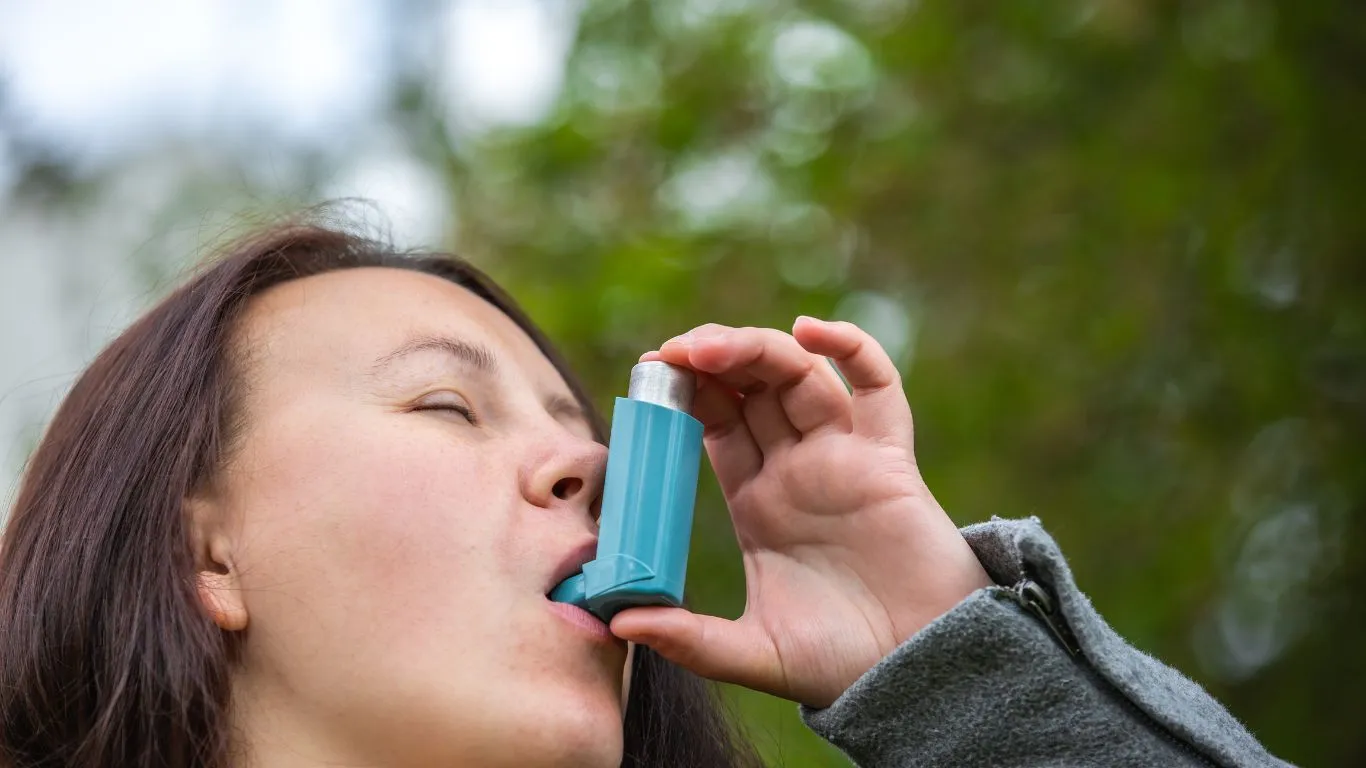Types of Asthma Triggers List – What You Need to Know
Asthma can be a tricky condition to manage, especially when you’re not sure what’s causing those flare-ups. But once you identify your asthma triggers, you can make simple changes that make a huge difference in your quality of life. Let’s dive into the common triggers and how to avoid them!
Why Do Asthma Triggers Matter?
Understanding asthma triggers is crucial to keeping things under control. Basically, anything that causes inflammation in the airways or makes the airways narrow can trigger an asthma attack. This could be something as common as dust or something seasonal like pollen. Once you know what’s causing your asthma symptoms, you can take steps to avoid them or reduce your exposure. 
Common Asthma Triggers: The Usual Suspects
Let’s get into the nitty-gritty of some of the most common asthma triggers.
1. Allergens: Dust, Mold, Pollen, and Pet Dander
Allergens are a huge trigger for a lot of people with asthma. Dust, mold, pollen, and pet dander are the usual culprits. If you’re sensitive to any of these, they can mess with your airways, leading to wheezing or tightness in your chest.
- Dust: It hides in your home and can irritate the lungs. Regular cleaning and using air purifiers can help reduce dust.
- Mold: Moist areas in your home (like bathrooms or basements) can grow mold, which can worsen asthma.
- Pollen: Seasonal allergens, especially in the spring, can trigger asthma. When pollen counts are high, consider staying indoors during peak times (usually early morning).
- Pet Dander: Even if you love animals, their fur and skin flakes (dander) can trigger asthma attacks. Regular grooming for pets and cleaning can help manage this.

2. Tobacco Smoke
Smoking, or even secondhand smoke, is a big no-no when you have asthma. It irritates the airways and increases inflammation. If you’re around smoke, whether it’s from cigarettes, cigars, or even the wood stove, it can make breathing harder. The best bet here? Stay away from smoke as much as possible. That means steering clear of smoky places and encouraging others to quit if you live with them.
3. Cold Air
If you live in a colder climate or experience sudden temperature changes, this could be a trigger. Cold, dry air can constrict your airways, leading to asthma symptoms. A scarf or face mask can help block out the cold air and keep your chest warm when you’re outside in chillier months.
4. Exercise
Exercise-induced asthma is pretty common. For some, physical activity can bring on symptoms, especially if they’re outdoors during the colder months or when there’s high pollen. But that doesn’t mean you need to skip your workouts! It’s all about managing the intensity and having a pre-exercise routine (like using your inhaler). Just remember to warm up before and cool down afterward.
5. Air Pollution
If you live in a city or an area with poor air quality, pollution might be one of your asthma triggers. Smog, car exhaust, and industrial emissions can irritate your lungs. It’s a good idea to check air quality reports (many weather apps do this now) and limit outdoor activities when pollution levels are high.
6. Strong Odors or Chemicals
Anything from cleaning products to perfumes to strong scents in the air (like candles or air fresheners) can trigger asthma. These strong smells can irritate your airways and make breathing harder. You might want to switch to fragrance-free or natural products to avoid triggering your asthma.
7. Respiratory Infections
Cold or flu season is a tough time for anyone with asthma. Respiratory infections like colds, the flu, or even sinus infections can lead to inflammation in the airways, worsening asthma symptoms. So, staying up-to-date with vaccines (like the flu shot) and washing your hands frequently is essential. 
How to Avoid or Manage Asthma Triggers
Knowing your triggers is the first step, but here’s how you can manage them.
- Stay Prepared: Always have your rescue inhaler or medication on hand. You never know when you might come across a trigger, so it’s better to be safe than sorry.
- Create a Clean Air Environment: Regularly clean your home, use air purifiers, and keep the windows closed during pollen season.
- Limit Exposure to Pollution: If you live in an area with high pollution, try to limit your outdoor time, especially on days when air quality is poor.
- Know When to Exercise: If exercise is a trigger, try indoor workouts or adjust the intensity. Always warm up and cool down properly.
- Consult Your Doctor: Regular check-ups and discussions with your healthcare provider can help you get your asthma under control. They can recommend specific treatments for your triggers.

Conclusion: Stay Informed and Take Control
Managing asthma is all about knowing your triggers and taking the right steps to minimize exposure. Once you know what sets off your asthma, you can make changes to your environment, routine, and lifestyle. With the right tools and strategies, asthma doesn’t have to control your life.
Appendices
FAQs
- What are the most common asthma triggers? The most common asthma triggers include allergens (dust, pet dander, pollen), tobacco smoke, cold air, exercise, air pollution, and respiratory infections.
- How can I reduce exposure to asthma triggers? Clean your living space regularly, use air purifiers, avoid smoking areas, and manage outdoor activities based on air quality.
- Can exercise trigger asthma? Yes, exercise-induced asthma is common. However, you can manage it by warming up, using your inhaler beforehand, and adjusting the intensity.
- What should I do if I have an asthma attack? Use your rescue inhaler, sit down to calm your breathing, and if symptoms don’t improve, seek medical help immediately.
- Are there any natural remedies for asthma? While there are no natural cures, some people find relief through certain herbs, breathing exercises, or yoga. Always consult your doctor before trying alternatives.
References
- National Heart, Lung, and Blood Institute. (2023). Asthma Triggers and Management. Read Article
- American Lung Association. (2024). Understanding Asthma. Read Article
- Mayo Clinic. (2024). Asthma: Causes and Risk Factors. Read Article
Disclaimer
The information provided in this article is for educational purposes only and should not be considered medical advice. Always consult with your doctor or healthcare provider before making any changes to your asthma management plan. Individual needs vary, so professional guidance is essential for your specific condition.














